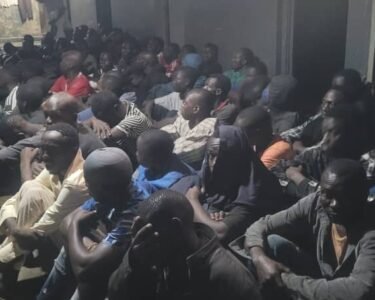The highly anticipated 19th Non-Aligned Movement (NAM) Summit kicks off today at Speke Resort, Munyonyo, the fourth time the meeting of 120 majority poor and developing countries is being held in Africa.
Uganda joins Egypt, Zimbabwe, Algeria, and Zambia to have hosted the summit in Africa. The Kampala summit was initially slated for April 2020 but was deferred indefinitely after the Covid-19 pandemic struck.
The week-long meeting under the theme, “Deepening cooperation for shared global affluence”, is expected to deliberate and issue pronouncements on key issues including geo-political tensions simmering from the powder keg Middle East to the South China Sea, development, human rights issues, climate change, transnational crime, and inclusive multilateralism.
Other salient issues include sustainable development and Agenda 2030, the world financial and economic crisis, unemployment, Africa’s development and challenges, food security, health, energy, racism, ICT, and the advancement of women.
The issues are detailed in a working essay called the outcome document—developed by parties detailing a specific agenda—that was opened for renegotiation and inputting a fortnight ago by NAM member states ambassadors at the UN in New York. As such, no last-minute issues such as the ongoing Rwanda-Burundi squabbling are entertained to ensure order.
By press time last evening, delegates were continuing to arrive in the country for the high-level summit. Some 1,500 delegates are expected in the country for this and the Third South Summit later.
North Korea, which joined the alliance in 1975, dispatched its Vice Foreign Minister for International Organisations, Mr Kim Son-Kyong, in keeping with the spirit of the hermit state’s president, Kim Jong Un’s New Year resolution to fortify relations with anti-West organs.
Ideally, NAM is a foreign policy agenda of developing countries allying with neither global power. However, given the prevailing dynamics including foreign aid and individual national interests, countries have advanced a notion of “strategic non-alignment”—of working with everyone.
India, a founding NAM member country, dispatched its Minister of External Affairs, Mr Subrahmanyam Jaishankar, while China, among the 18 observer countries, sent President Xi Jinping’s special representative Liu Guozhong.
The summit today will commence with a plenary session for the opening of the Senior Officials’ Meeting and thereafter split into two committees; the Political Committee chaired by Uganda’s Permanent Representative to UN, Ambassador Adonia Ayebare, and the Economic and Social Committee chaired by Uganda’s deputy High Commissioner to London, Ambassador Leonard Mugerwa.
The negotiations by the two committees will lead to the “Kampala outcome document”, which will be adopted by the two-day meeting of the Ministers of Foreign Affairs, and declared at the Heads of State summit on Friday and Saturday.
President Museveni, who will take on the chairmanship of NAM for the next three years is expected to address the heads of State on Saturday. At least 28 heads of state are expected to attend, and according to the programme, start jetting into the country on Wednesday.
Other key addresses include those by the representatives of the regional groups comprising the movement, statements by heads of state and government, and heads of delegations, and an address by the Secretary General of the United Nations, Mr Antonio Guterres, who, according to sources, confirmed attendance.
NAM, as an idea, was first mooted in April 1955 at the Afro-Asia Solidarity Summit held in Bundung, Indonesia.
This paved way for the first summit in Belgrade, capital of then Yugoslavia, in 1961 convened by Yugoslav president Josip Tito, India’s first prime minister Jawaharlal Nehru, and Egypt’s president Gamal Abdel Nasser, proclaiming non-alignment as a foreign policy of allying neither with the US nor the Union of Soviet Socialist Republics (USSR).
While the USSR collapsed in 1991, the US still stands.
The NAM Summit will be immediately followed by the Third South Summit, the apex organ of the G-77+China alliance, under the theme “Leaving no one behind” from January 18 to January 22 to discuss social crises from poverty, climate change, trade and investments.
Uganda will simultaneously assume the chairmanship of the alliance from Cuba.
Established 59 years ago with initial membership of 77 countries (G-77), the alliance has since grown to 134 countries, becoming the largest inter-governmental organisation of the UN, with the mission to promote members’ collective economic interests.
China, the world’s second-largest economy, is not fully a member of the forum but maintains observer status and attends annual meetings hence tag ‘G77+China’.





